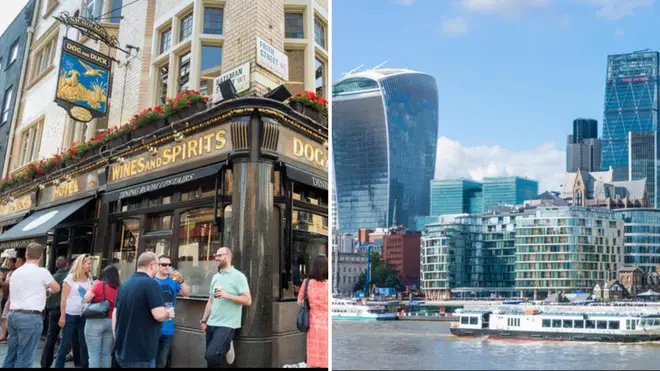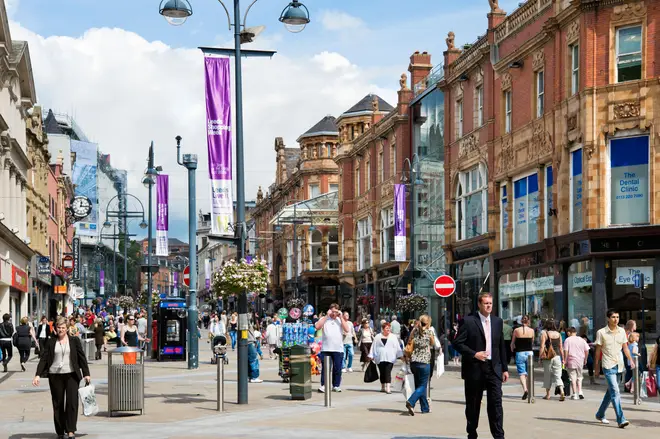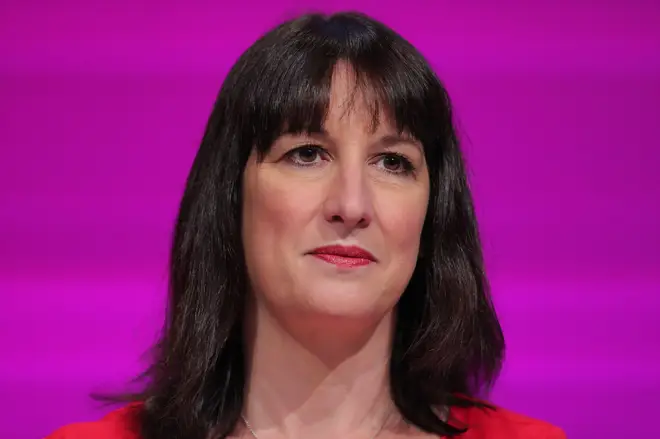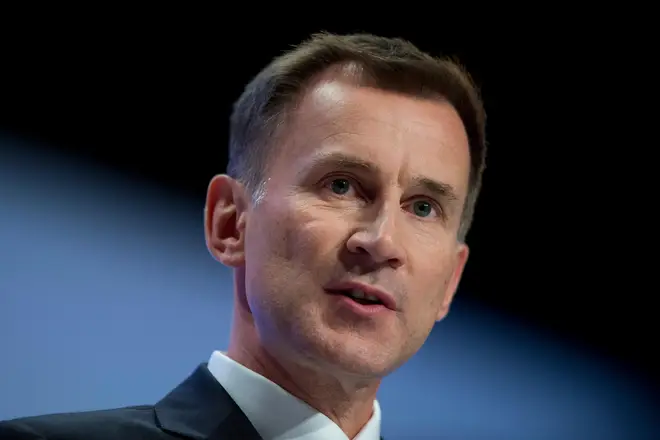
Simon Marks 4pm - 7pm
14 June 2023, 08:11 | Updated: 14 June 2023, 08:13

Good business at pubs, bars and shops helped the British economy bounce back slightly in April, official figures show.
GDP grew by 0.2% in April, having shrunk by 0.3% in March, according to the Office for National Statistics (ONS).
The UK is expected to avoid a recession - the economy getting smaller for three straight months - although growth is lagging behind other advanced countries.
ONS director of economic statistics Darren Morgan said: "GDP bounced back after a weak March.
"Bars and pubs had a comparatively strong April, while car sales rebounded and education partially recovered from the effect of the previous month's strikes.
Listen and subscribe to Unprecedented: Inside Downing Street on Global Player

"These were partially offset by falls in health, which was affected by the junior doctors strikes, along with falls in computer manufacturing and the often-erratic pharmaceuticals industry.
"House-builders and estate agents also had a poor month."
Chancellor Jeremy Hunt said that the government was growing the economy, adding that "the IMF [was] saying that from 2025 we will grow faster than Germany, France and Italy."
He added: "But high growth needs low inflation, so we must stick relentlessly to our plan to halve the rate this year to protect family budgets."

Labour's shadow chancellor Rachel Reeves hit back, saying: "Despite our country's huge potential and promise, today is another day in the dismal low-growth record book of this Conservative Government.
"The facts remain that families are feeling worse off, facing a soaring Tory mortgage penalty and we're lagging behind on the global stage."
David Buik told LBC's Nick Ferrari on Wednesday that the latest figures were "an awful lot better than the IMF and the Bank of England thought they'd be at the beginning of this year when they both had us carded for recession."
But he added: "There were disappointing issues in it though the manufacturing sector was down 0.3%, construction, which surprised me was down 0.6%.

"But what was good was the services, which we expect in this country."
It comes after Mr Hunt said this week that taxes might be cut if public sector increased.
The Chancellor has maintained that bringing down inflation must remain the government's "immediate priority" in order to pave the way for increased growth.
Speaking at the Centre for Policy Studies' (CPS) Margaret Thatcher conference on Monday, Mr Hunt said this should be only the "starting point" of the UK's economic mission.
According to Mr Hunt, keeping up with projected spending pressures would mean increasing annual tax revenues by £200 billion by 2071, or doubling income tax and main rate of employee national insurance.
However, if productivity growth in the public sector increased by 0.5 per cent annually, the "gap" between anticipated growth and anticipated spending up to 2050 would be closed, he said.

Mr Hunt told the conference: "All advanced economies face slower growth. We need to find a smarter way out of the challenge.
"Tackling inflation must be the immediate priority - but that's the starting point, not the end point. We need growth driven by increases in productivity.
"If we replicate the productivity growth we've seen in the private sector and apply it to the public sector, we start to increase GDP.It would mean increasing tax revenues, without increasing tax rates - and it will put us on a sustainable path to lower taxes."